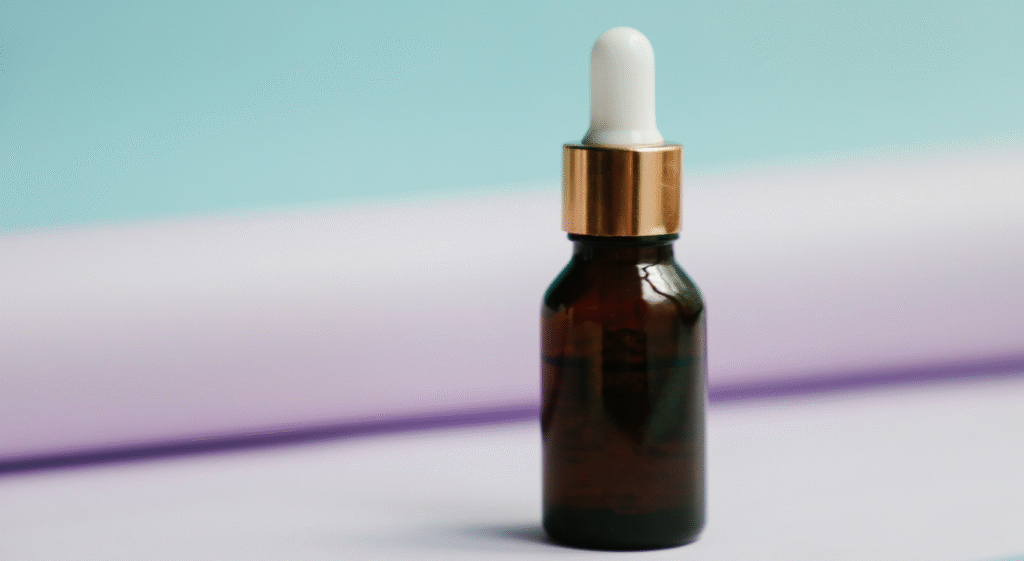When it comes to skincare, two products that often cause confusion are serum and toner. They might look similar in packaging, but their purpose, texture, and benefits are completely different. Knowing the difference between serum and toner can help you choose the right product for your skin type and needs.
A toner is usually a water-based product applied right after cleansing. Its main job is to remove leftover dirt, balance skin’s pH levels, and prepare the skin to absorb other products better. Toners can be hydrating, soothing, or exfoliating depending on the ingredients.
A serum, on the other hand, is a concentrated product with active ingredients that target specific skin concerns such as wrinkles, dullness, pigmentation, or acne. Serums are usually applied after toner but before moisturizer.
While toner preps your skin, serum treats it. Both can work together for better results, but using them correctly is important. Understanding their roles will help you build an effective skincare routine without wasting money or effort.
What is a Toner?
A toner is a lightweight liquid applied to your skin after cleansing. In the past, toners were mainly used to remove soap residue and tighten pores. Today, modern toners are gentler and focus more on hydration and nourishment.
Toners can be of different types:
Hydrating Toners – Add moisture and refresh the skin.
Exfoliating Toners – Contain mild acids to remove dead skin cells.
Soothing Toners – Reduce redness and calm sensitive skin.
The main benefit of toner is to prepare your skin to absorb the products that follow, like serum and moisturizer. It helps in maintaining a healthy pH balance, which is important for overall skin health.
To use toner, apply it with a cotton pad or pat it directly onto the skin with clean hands. Avoid alcohol-heavy formulas if you have dry or sensitive skin. A good toner leaves your skin fresh, hydrated, and ready for the next steps in your skincare routine.
What is a Serum?
A serum is a concentrated skincare product packed with active ingredients that target specific skin problems. Unlike toners, serums have a thicker texture and penetrate deeper into the skin.
There are different types of serums depending on the concern:
Brightening Serums – Contain vitamin C to improve skin tone and reduce dullness.
Anti-Aging Serums – Use ingredients like retinol or peptides to reduce wrinkles.
Hydrating Serums – Have hyaluronic acid to lock in moisture.
Acne-Fighting Serums – Include salicylic acid or niacinamide to control breakouts.
Serums are usually applied after toner but before moisturizer. Just a few drops are enough because of their strong concentration. The purpose of a serum is to deliver nutrients and treatment directly into the skin layers where they are needed most.
If used regularly, serums can make a visible difference in your skin’s texture, clarity, and overall health. Choosing the right serum depends on your skin type and primary skin concerns.
Main Differences Between Serum and Toner
The biggest difference between serum and toner is their function. Toner cleanses and preps your skin, while serum treats specific skin concerns.
Toner is usually water-like and applied with a cotton pad or hands, while serum is thicker and comes in small dropper bottles for precise application. Toner focuses on balancing and refreshing, whereas serum focuses on repairing and improving skin condition.
In short, toner is like the “starter” in your skincare routine, and serum is the “main course” for targeted treatment.
How to Use Serum and Toner Together
For the best results, toner and serum should be used in the right order. First, cleanse your face to remove dirt and oil. Then, apply toner to refresh your skin and make it ready for deeper absorption.
Once your toner is absorbed, apply a few drops of serum and gently press it into the skin. Finish with a moisturizer to lock everything in.
This combination works because toner opens the way for serum to work more effectively, allowing active ingredients to reach deeper layers of skin.
Which One Should You Choose?
If you must choose only one, the decision depends on your skin’s needs. If your skin feels dry, dull, or unbalanced, go for a toner to refresh and hydrate it daily.
If you have specific concerns like acne, pigmentation, or aging, a serum will give you targeted results.
However, for the most effective skincare routine, using both toner and serum together will give your skin both preparation and treatment benefits.



